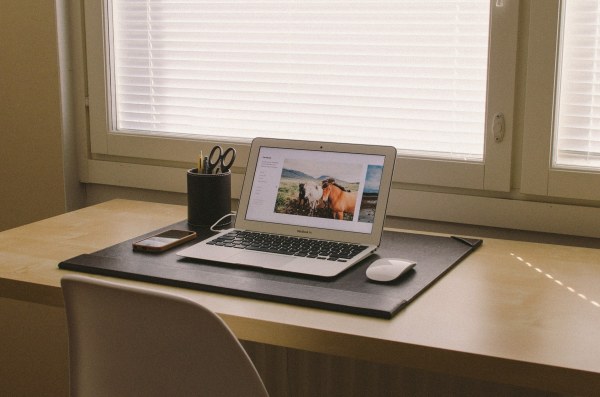Article by Elisa Rossi
 Remote work can open a world of possibilities. It enables businesses to access a global pool of diverse talent while empowering people to live and work from wherever they want.
Remote work can open a world of possibilities. It enables businesses to access a global pool of diverse talent while empowering people to live and work from wherever they want.
When done right, remote work offers flexibility that can lead to increased productivity, work-life balance, and happiness.
As an executive at Remote and as a mother, I have long been an advocate for the benefits of remote work, especially for women in the workplace. Working remotely enables me to help Remote grow, run my own business, look after my family, and enjoy life. It gave me the opportunity to return to my home country of Italy to be closer to my parents without sacrificing my career. Remote work has given me freedom and made me stronger, more balanced, and able to pursue better outcomes for my family.
During the pandemic, many businesses pivoted to remote work. However, this crisis-driven decision and the challenges of Covid-19 has obscured and muddled these potential benefits.
Under normal circumstances, remote work gives people more time to focus, as they don’t have to worry about the daily commute and can better balance work and life. Instead, many workers faced new stresses and difficulties, as companies clumsily attempted to replicate physical offices with digital tools. Due to lockdowns and the need to self-isolate, workers could not leave the house to use coworking spaces, visit the gym, or meet friends for lunch as they might during normal remote working. Meanwhile parents, especially working mothers, had to juggle childcare as schools were shut down.
Instead of enjoying the freedom and opportunity offered by remote work, we learned just how vulnerable working women are during an emergency, as they have been significantly affected by the economic downturn caused by the pandemic. According to the UK government, 232,000 fewer women were employed by the end of 2020 than at the beginning. More women than men were furloughed across the UK, and women make up the majority of employees in sectors that have seen the largest Covid-related job cuts, such as retail and hospitality.
Working mothers have also been disproportionately impacted. With schools closed, the burden of unpaid childcare mostly fell on them, which adversely affected their employment: the Fawcett Society found that 35% of working mothers had lost work or hours due to the lack of childcare support during the pandemic. Furthermore, mothers were 1.5 times more likely than fathers to have either lost their job or quit and were more likely to have been furloughed, according to the Institute for Fiscal Studies.
Clearly, there is a lot of damage to undo, but with pandemic restrictions gradually being lifted, we have a chance to rebuild. And instead of treating remote work as an emergency response, it can be fully embraced and change the world for the better, because women deserve better tools and opportunities to achieve their ideal work-life balance. To do that, however, we must first raise awareness of the true advantages of a remote-first work-life balance.
Thankfully, a lot of enterprises in the UK are starting to recognise these advantages and are trending towards adopting fully remote or hybrid working models. For instance, the building society Nationwide announced in March that all of its 13,000 office staff will be allowed to work remotely even after workplace restrictions are lifted.
In order to take advantage of this opportunity for progress, how should leaders act if they want to support remote workforces? What needs to happen to make more equitable working conditions for all a reality?
One change leaders should consider is to focus on outcomes, not hours. Why should hours matter when the bottom line reflects the work completed, not the time spent doing it? Companies do better when they focus less on the hours worked and more on results achieved.
At Remote, we believe in the importance of asynchronous work, which enables people to bring their whole selves to work at the times that work best for them. For women especially, who are often disproportionately responsible for domestic tasks, prioritising results over time offers greater flexibility.
Another change is that businesses must create more proactively inclusive policies. Unconscious biases are easy to overlook in remote environments, so leaders must take care to keep inclusivity in mind and create policies that bring these issues to light.
For instance, encouraging staff to turn off their video during video calls can make life easier for more people at work. At Remote, we also host self-care days once per quarter, in addition to our mandatory minimum PTO, to encourage people to take a break from work and take care of themselves.
These are just a few ideas, but right now is a watershed moment for businesses. Those who recognise the benefits of remote work outside of pandemic conditions will not allow a return to the status quo. Plus, companies that do not create more equitable work conditions risk losing their best talent to firms with more forward-thinking policies such as asynchronous work.
So, while remote work did not live up to its potential in 2020, the next few years are set to deliver an acceleration towards equity as businesses adopt new capabilities that will give workers, especially women, more options and stronger voices.
Read this next…
 How remote working is helping balance the gender inequality scales
How remote working is helping balance the gender inequality scales
For years, women have been held back in their careers for being ‘too nice’ or ‘too family-orientated’. Being a fully remote company, I’m extremely proud that Interprefy’s team consists of a slight majority of women. Flexible work schedules and the absence of a commute allows us to reconcile work and family better, regardless of gender. And while certainly challenging in many regards, and juggling childcare and work does not disappear miraculously, remote working helps balance the gender inequality scales.
WeAreTheCity covers the latest female centric news stories from around the world, focusing on women in business, careers and current affairs. You can find all the latest gender news here.
Don’t forget, you can also follow us via our social media channels for the latest up-to-date gender news. Click to follow us on Twitter, Facebook, Instagram, and YouTube.








